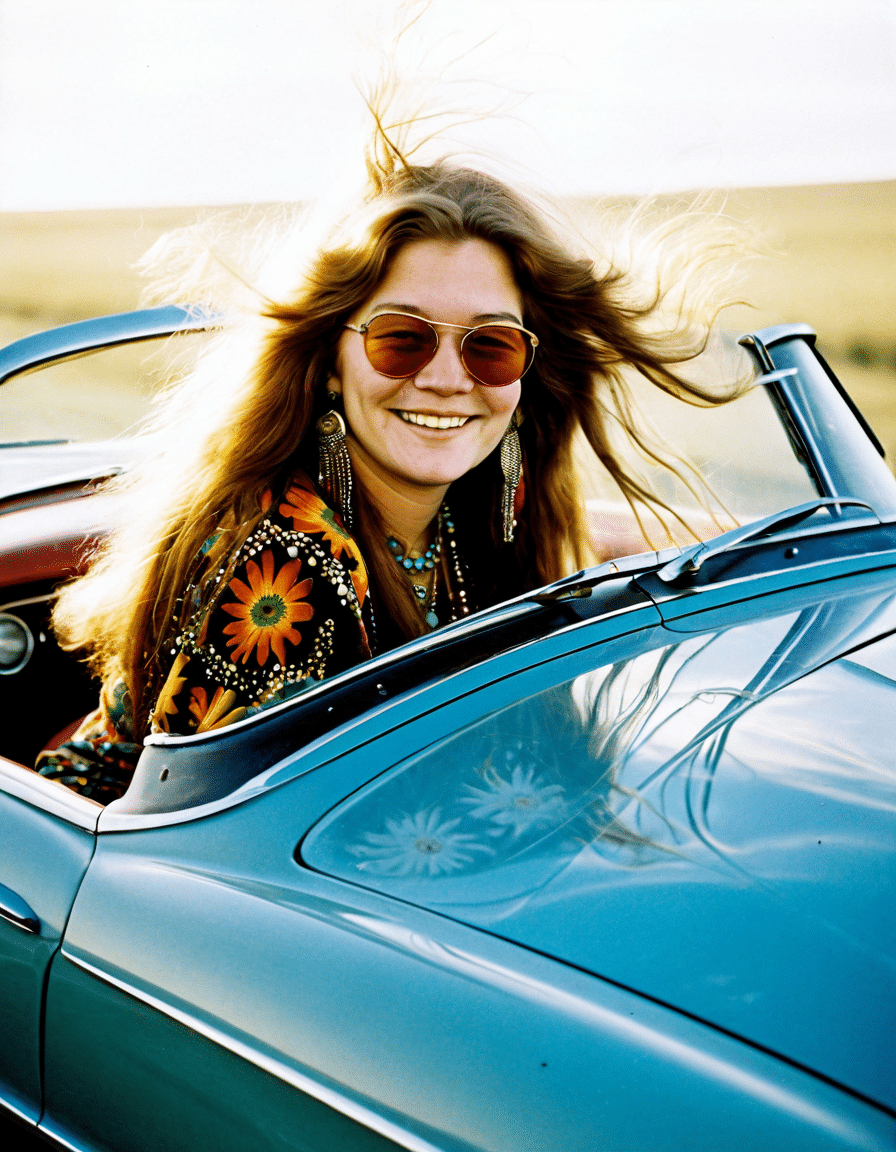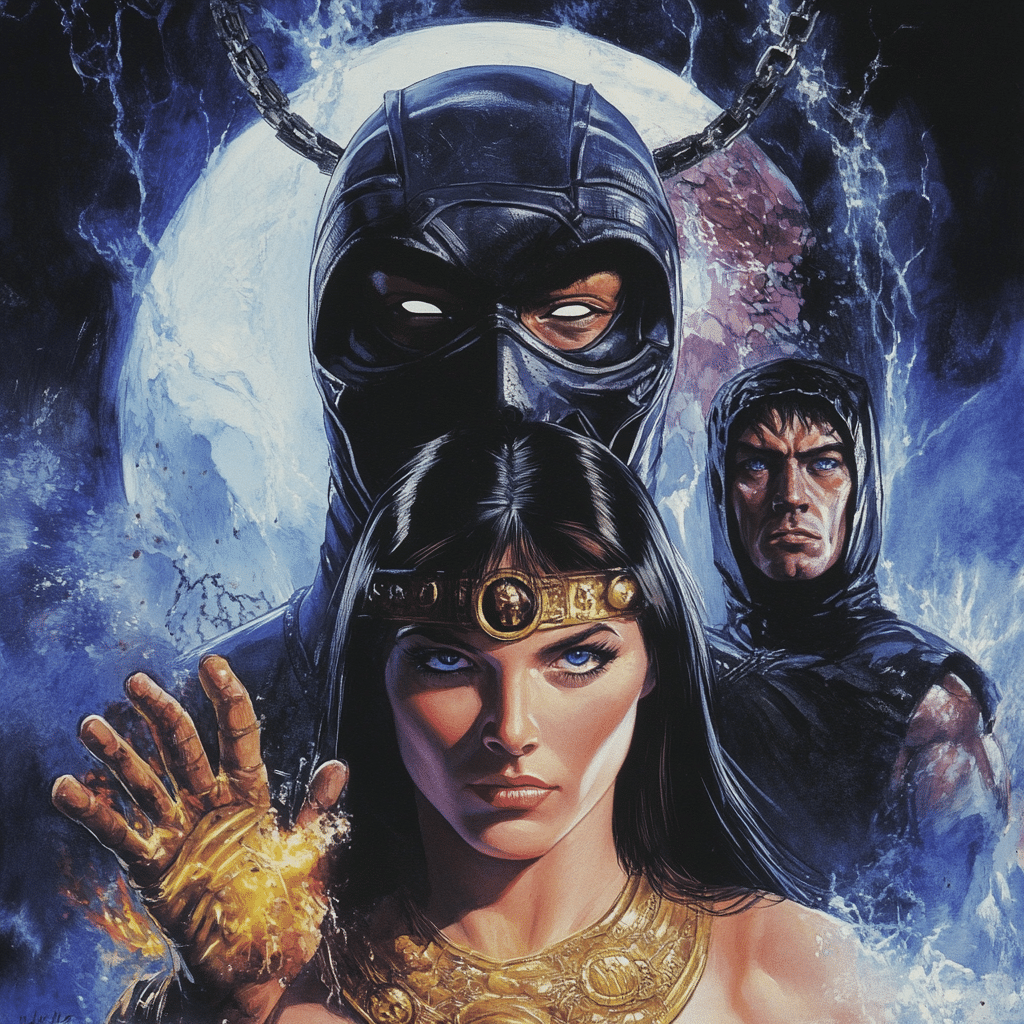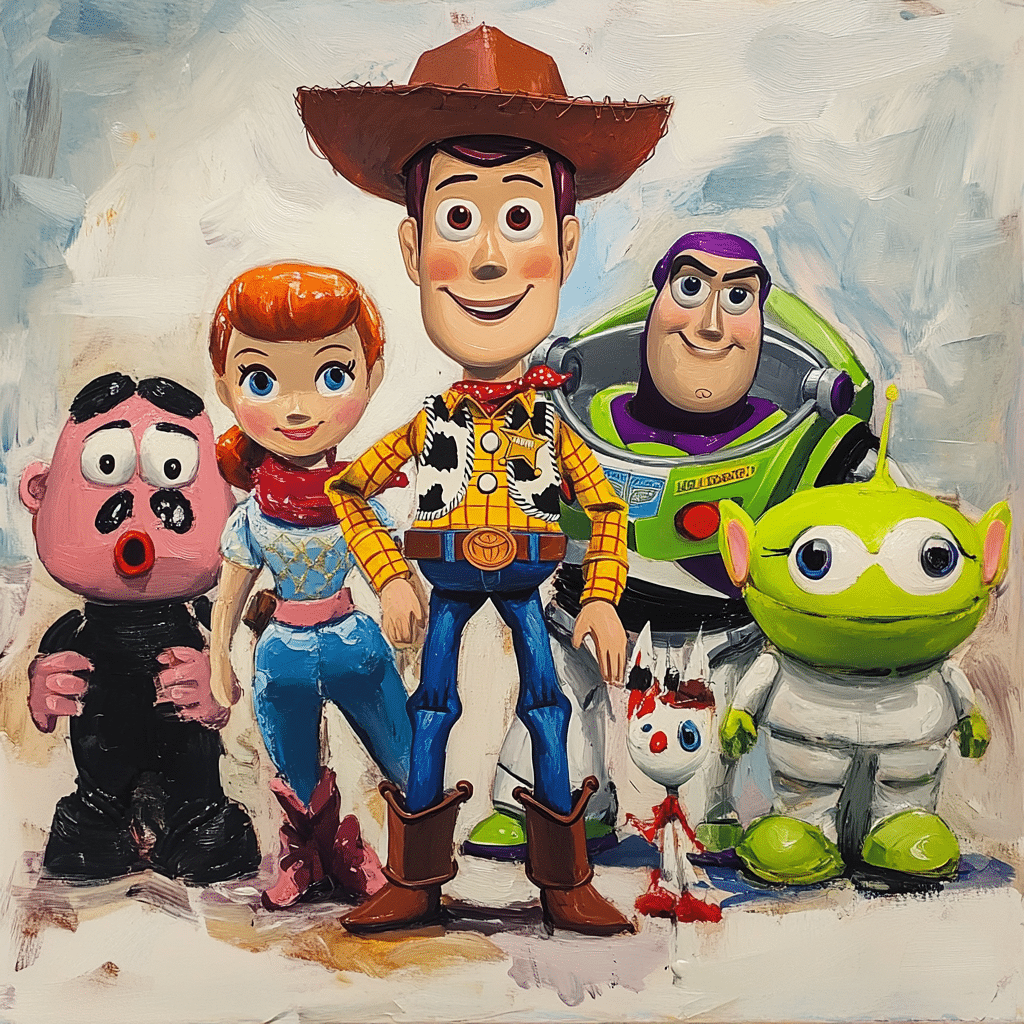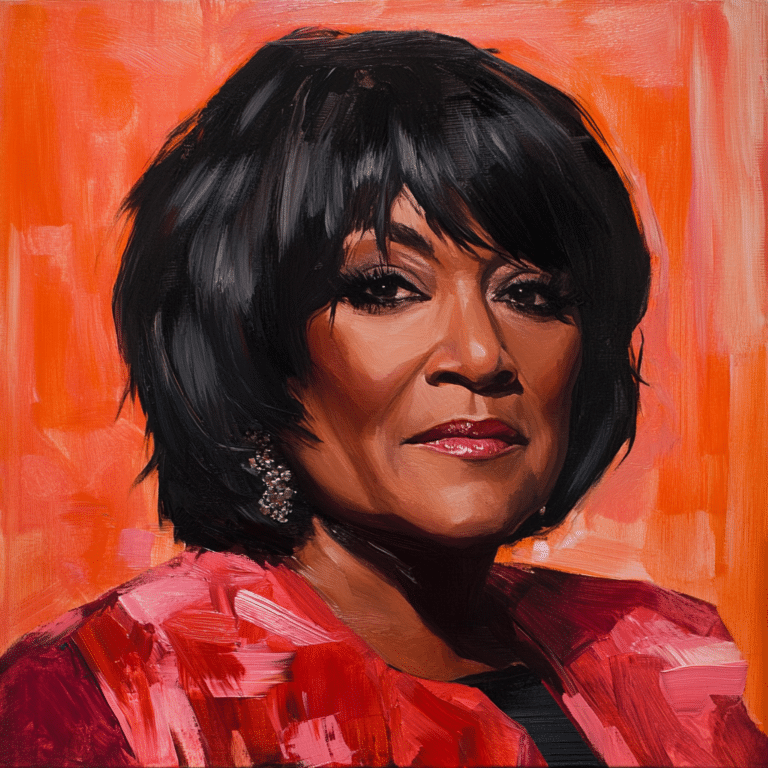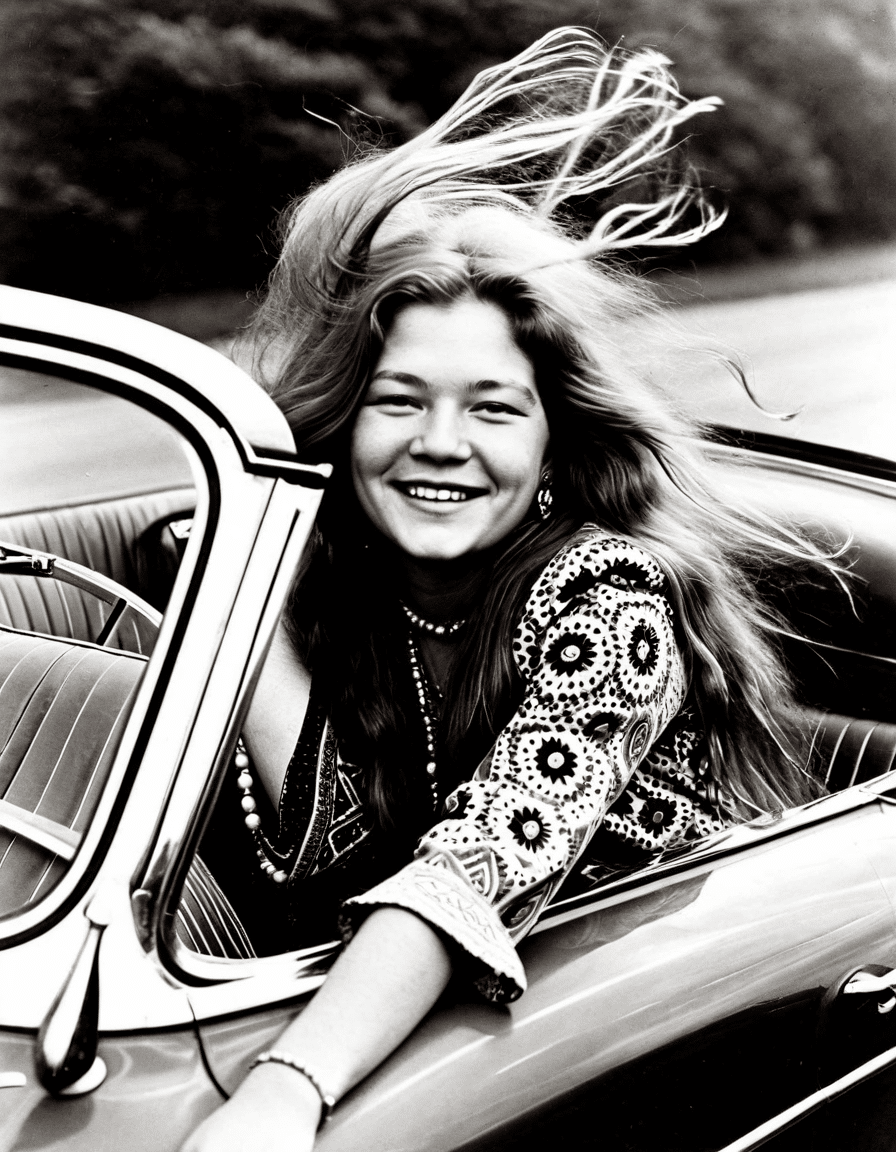
1. The Legacy of Janis Joplin in Rock History
When we talk about raw talent and emotional depth in rock music, Janis Joplin is a name that stands tall amongst the legends. Not only was she a powerhouse singer, but she also became an unexpected beacon of change in an industry still very much dominated by men in the late ’60s. Tragically, her life was cut short in 1970, but her music? It’s timeless. Ever since she burst onto the scene with her electrifying performances, Janis has influenced countless artists and continues to resonate with fans young and old.
Her unique vocal style—raspy yet powerful—allowed her to express a rich tapestry of feelings that so many could relate to. Let’s be honest, who hasn’t sung along (or at least tried to) to “Piece of My Heart” while pretending to be a rock star in the shower? Joplin didn’t just sing; she felt her songs, pouring her heart and soul into every note. This undeniable emotional delivery shaped the landscape of rock music, allowing for more freedom in expressing vulnerability and strength.
Besides her vocal talent, her persona was something else. With her eclectic fashion and unapologetic attitude, Janis challenged the societal norms of femininity and proved that you could be both fierce and fragile. She paved the way for future female rockers, showing them that they too could take the stage and command attention. Her legacy? It’s a movement—a vibrant statement that artists shouldn’t shy away from who they are, flaws and all.
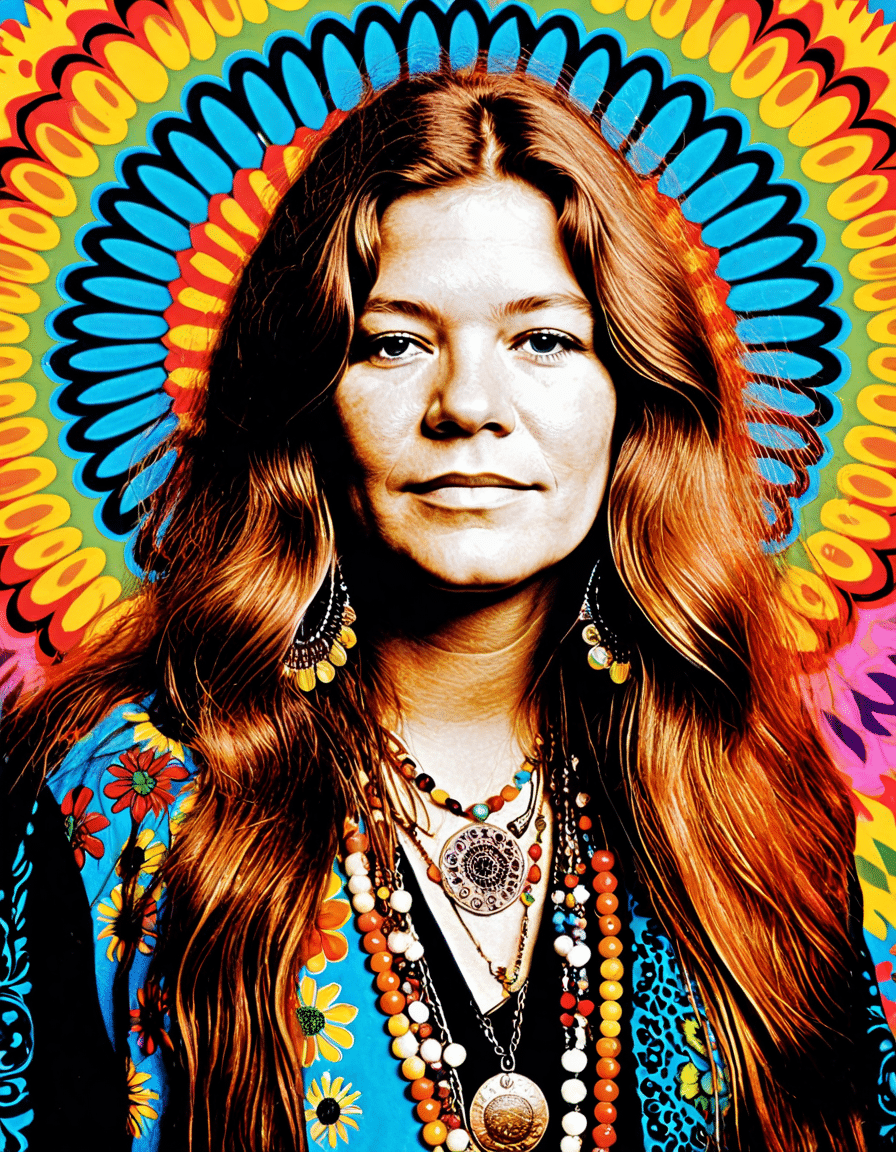
2. The Undeniable Impact: Janis Joplin vs. Aretha Franklin and Linda Ronstadt
Now, when we pull back the curtain on musical icons, figures like Aretha Franklin, Linda Ronstadt, and, of course, Janis Joplin are often discussed together. Each brought something uniquely different to the table, shaping their respective genres in remarkable ways.
A. Janis Joplin: The Queen of Emotional Blues Rock
Janis roared into the San Francisco music scene in the late ’60s with her band Big Brother and the Holding Company. Festivals like Woodstock and Monterey Pop saw her unleash torrents of passion through songs like “Summertime” and “Ball and Chain,” leaving audiences awestruck. Her blues-infused rock wasn’t just about music; it was a cathartic experience that connected with people on an emotional level. You could feel her pain, her joy; it was all laid bare in every performance.
B. Aretha Franklin: The Soulful Empress
Switching gears, let’s talk about Aretha Franklin, known as the “Queen of Soul.” With her roots steeped in gospel, Franklin brought a sense of empowerment to the music world that resonated deeply, particularly through hits like “Respect.” She wasn’t just singing; she was laying down a demand for dignity and equality, which, let’s face it, everyone could use a little more of, right? Aretha’s contributions carved out a vital space for women artists in soul and R&B, setting the bar high for vocal prowess and emotional delivery.
C. Linda Ronstadt: The Versatile Star
Then there’s Linda Ronstadt, the versatile chameleon who could switch from rock to country as effortlessly as flipping a switch. Songs like “You’re No Good” and “Blue Bayou” showcased her vocal range and adaptability. Linda’s ability to collaborate across genres stands out, proving that music knows no boundaries. Her influence, much like Joplin’s, demonstrates how female artists have pushed against conventional limits while expressing their individuality.
3. Cultural Shifts Initiated by Joplin’s Presence
In the swirling landscape of the ’60s, Joplin’s unfiltered authenticity shook up the music scene. She wasn’t just a singer; she was a walking, singing symbol of the feminist wave that was brewing. Janis was fearless in expressing vulnerability, which helped redefine what it meant to be a woman in rock music. This was a time when society was changing, and her refusal to fit into traditional molds resonated deeply with many.
Moreover, her battles with addiction and mental health highlighted critical issues that artists face. By bravely sharing her struggles, she sparked vital conversations about the pressures of celebrity life and the emotional toll it can take. It’s a dialogue that truly needed to happen, and thankfully, Janis was at the forefront of that discussion.
4. Lasting Influence on Modern Artists
Fast forward to 2026, and it’s clear that Janis Joplin’s spirit lives on in today’s music scene. Contemporary artists like Grace Potter, Florence Welch, and Haim frequently cite Joplin as a major influence. They draw inspiration from her emotive depth and fierce authenticity, weaving these elements into their songs as they forge their paths. It’s remarkable how she set the stage for a new wave of rock artists, urging them to pour their emotions into their works.
New genres continue to emerge, but the essence of what Janis represented—the blend of rock, soul, and blues—remains a blueprint for artists. Whether it’s through powerful ballads or upbeat tracks, the emotional core she exemplified still impacts music today.
5. The Ongoing Relevance of Joplin’s Music
Janis Joplin’s music has seen something of a resurgence in recent years, threading its way into popular culture in unexpected avenues. Media like documentaries and biopics continue to bring her story to light, creating sparks of interest in her contributions to music. Films, TV series, and even modern remastered albums keep her presence vibrant for both longtime fans and newcomers alike.
This revival is not just nostalgia; it’s a recognition of the relevance her voice carries—even decades later. Cover versions of her songs by current artists show that her influence knows no bounds. Just when you thought the sound of her music was going extinct, a new generation steps up to keep her spirit alive, reminding us all of the emotional power Janis wielded through her art.
Reflecting on Janis Joplin’s Legacy
Janis Joplin’s impact on rock music is more than a footnote in history; it’s a vivid chapter that transformed the music industry. She embodied a fearless spirit that combined vulnerability with overwhelming power. Joplin’s legacy isn’t just about her remarkable voice; it represents a significant cultural shift towards authenticity and emotional honesty in artistry.
That chorus of her songs still echoes through the years, but it’s the spirit of rebellion and emotional expression that truly revolutionized rock. Janis didn’t just pave the way—she blew open the doors for generations of artists to come. So next time you tune into a classic or catch a contemporary artist in action, remember: there’s a little piece of Janis Joplin in all of them, reminding us that it’s okay to express yourself raw and real.
Janis Joplin: Trivia That Rocks
The Trailblazer’s Beginnings
Janis Joplin, known for her powerful voice and dynamic performances, wasn’t just a musical icon; she was a true pioneer. Born in Port Arthur, Texas, in 1943, she faced plenty of challenges early in her life. Interestingly, she was influenced by a variety of genres, including blues and folk rock. In a way, her roiling emotional style can be compared to the stirring narrative of Pootie Tang, a classic that blends humor with heartfelt moments. And much like Highlander, Janis proved that there can be only one voice that transcends time and genre.
The Voice of a Generation
Janis once said, “If you’re going to take a chance, take it all the way,” and she certainly lived by those words. Her debut album, Cheap Thrills, released in 1968, climbed to the top of the charts and showcased her wild spirit. Did you know she recorded one of her most famous tracks, “Me and Bobby McGee,” shortly before her untimely passing? It’s a testament to her legacy that the song continues to resonate. In much the same way, the journey of Journey to Bethlehem resonates with audiences today, reflecting the struggles and triumphs we all share. It’s all about that universal connection—just like the bond fans felt with Janis.
A Cultural Impact That’s Eternal
Janis Joplin’s influence can be seen not just in music but also in popular culture. From movies to television, her spirit echoes through time. You might even see a nod to her rebelliousness in characters like Bernadette from The Big Bang Theory, who carries a fierce yet endearing personality. Joplin’s style and authenticity have inspired countless artists, including actors like Giacomo Gianniotti, who capture the essence of their own characters with raw emotion—a quality that Janis made legendary.
In addition, she shared a unique connection to social movements of her time, including women’s rights. Her artistic expression contributed to the conversation surrounding issues similar to those in Roe vs. Wade. In a world that constantly shifts, Janis Joplin’s music remains a steadfast touchstone, reminding us that true artistry resonates forever, regardless of changing trends and times, just like Kevin Garnetts legendary passion for the game.
